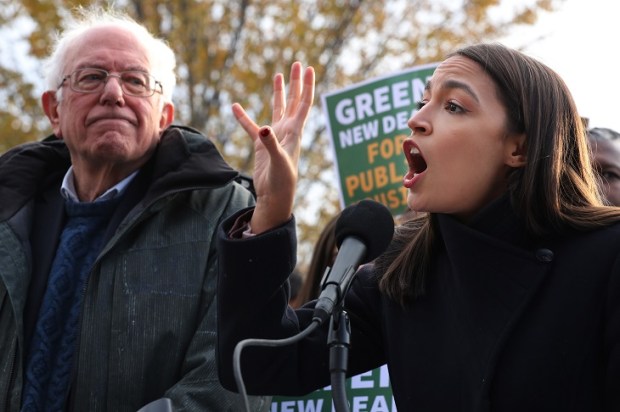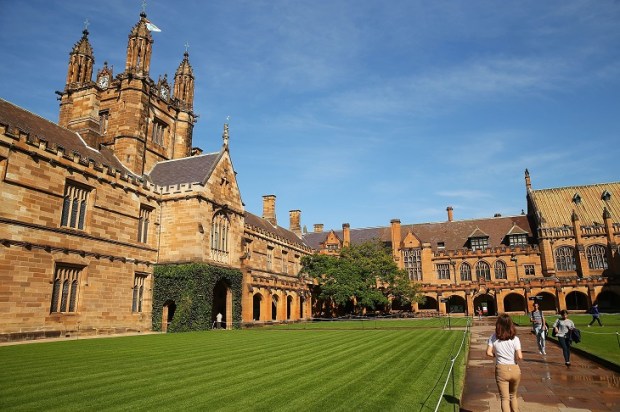In light of another election loss for the Liberal Party – this time in Victoria – the usual recriminations and the reign of a new leader have begun. The consensus among the commentariat is that the Liberals lost as they were too weak-willed: they ‘stood for nothing’ and gave voters little reason to change. The path to Liberal victory, then, lies in the party having the courage of its convictions and advocating real conservative change.
So far so good. There’s only one problem… This is precisely what the party brought to the last election – which they lost badly. Indeed, in 2018 the Victorian Liberals ran on a law-and-order platform in which they promised to ‘get back in control’ and resolve the issue of African gangs and were thoroughly routed.
We’re thus at an impasse. The Liberals ran a conservative campaign in 2018 and lost. They ran a ‘Labor-light’ campaign four years later and lost again. Clearly, something doesn’t stack up.
What makes matters worse is that it’s not as if Labor have given the Liberals nothing to work with. The Victorian ALP currently presides over the largest pile of debt in the land; while Premier Dan Andrews oversaw one of the harshest Covid regimes in the world and is involved in an IBAC enquiry.
This is neither a recent issue nor one restricted to our ‘Massachusetts on the Murray’ either. The ALP are in power federally; have won six of the last seven elections in the Garden State; and reign in all but two of our states and territories – with New South Wales looking like a real prospect of shifting to the left early next year too.
Why, in spite of whatever egregious errors the ALP can conjure, are the Liberals locked out of power? Why, as the party itself concedes, is it in the midst of an identity crisis and unsure of its fate?
The main reason is that all the major cultural, commercial, and educational trends are running against them. As our readers have long witnessed, and commentators like Paul Kelly have come to realise, the Liberals are lost as the Left dominates the commercial and cultural landscape.
Take sport. Soccer squads ‘take the knee’ and ‘don the rainbow’ worldwide. AFL clubs are upbraided for their alleged racism and for not being sufficiently ‘Woke’. While young women, who in previous eras were encouraged to get married and start a family, and now urged to fight, drink, and play footy as well as the men.
Take education. No longer are students instructed in the Western tradition – with Classics departments almost eliminated from the academy – and in the ‘best that’s been thought and said’. They’re instead urged to ‘decolonise the curriculum’ and view all issues through ‘an Indigenous lens’– even in universals like mathematics. God, there are even drag-queens reading stories to children in libraries.
Take the commercial sector. What one sees in shops and the public square is hardly redolent of the right. Instead of any encomiums to conservatism, one is more likely to find an endless ode to liberalism. Alongside the now-standard rainbow flags, there are ads urging uber-liberal sexual mores upon children, and the removal of our national flag entirely – like what we witnessed with Greens leader Adam Bandt earlier this year.
So ubiquitous are such notions, it’s easy to forget how rare they recently were, and how completely captured the culture has become. As an excellent English article observed, the culture war is not some figment of a right-wing imagination, but a rear-guard action against our utterly dominant left-liberalism. A movement, which the author notes, is ‘like the water you swim in’ – with the logical consequence that anything with a whiff of conservatism is seen as déclassé and shunned.
It is a key stance that was again confirmed in the Victorian election. Alongside Paul Kelly, George Megalogenis, and other journalists have noted that the Liberal Party is noxious to certain sectors of society. Like women, ‘with just 32 per cent of women casting a primary vote for the Coalition’; the tertiary educated, who overwhelmingly lean left; and the young ‘with only one in four voters under the age of 40 voting for the Coalition’. This is not to mention migrant groups either: like Chinese Australians and other immigrant groups in the highly diverse suburbs of Western Melbourne – i.e. an area utterly dominated by the ALP.
In this light, the failures of the Liberal Party begin to make more sense. What the Liberals haven’t realised is that they’re not only competing on policy ground… For every voter who weighs such issues there are dozens more who’ll vote almost exclusively according to gender, ethnicity, or emotional ties.
When it comes to many new Australians, the Liberal Party is seen as simply low-status. It is an uncool outfit that’s little more than an unwanted anachronism – the party of the ‘pale, male, and stale’ – and thus avoided. A trend that’s confirmed abroad too: with American academic Michael Anton noting that the best predictor of Democrat (i.e. left) voting preference in an electorate is the percentage of foreign-born: the higher the latter, the higher the former.
At a deeper level, the failure of the Liberals is a consequence of the incoherence at the heart of the party. As the party’s supposed ‘broad church’ melding of traditional Burkean conservatism with Hayekian free-market liberalism has moved from being a barely believable cliché to an outright fantasy: with the former completely eroded and overridden by the latter.
This is something the excellent English writer Aris Roussinos has noted in light of the similar European experience. Roussinos remarks: ‘The 20th century battle between communism and capitalism has had a strange, debilitating effect on British conservatives… [and their]…breathless Whiggish faith in the free market to cure all of society’s ills.’
In a stance that is ultimately shallow, the conservative movement couldn’t ‘perceive that the Thatcher revolution was too successful: by kicking away the last props of the pre-capitalist order that underwrote the traditional conservative worldview, it killed off that which it proclaimed to love’.
Irony now manifests in those countries conservatives proclaim to love the most, like Hungary and Poland, and the fact their existence is due to their avoidance of the Western model. In spite of their current anti-communism, ‘…it was the statist paternalism of their communist regimes that preserved in aspic societies fundamentally more conservative than those eroded by capitalist liberalism in the free-market West. Without Marx, there could be no Orban or Kaczynski; without communism, Hungary and Poland would look like Britain or France.’
Indeed, our entire model of laissez-faire migration-led growth is toxic to traditional conservatism. On the one hand, the demographic diversity it brings is corrosive of social cohesion, as Robert Putnam noted. While on the other, our laissez-faire capitalism acts to undermine both the family and financial stability, as writers like Christopher Lasch and John Gray have observed, and our enfeebled fertility rate confirms.
Unless there’s major structural reform – like an urgent overhaul of our immigration and education regimes, and a tempering of the excesses of both liberalism and the market – there is no future for a real centre-right: be it the Liberal Party or anyone else.
The Liberals will have to remake themselves as an almost-as-liberal-as-Labor party – by somehow appealing to women, the young, and migrant groups: like the way Trump and the Republicans did to Latinos – or risk extinction.
If not, the immediate alternative appears to be an ongoing, left-liberalism. It is not something we’d wish upon our worst enemies, but this is a trend that’s all but confirmed and for which the Liberal Party only has itself to blame.

























